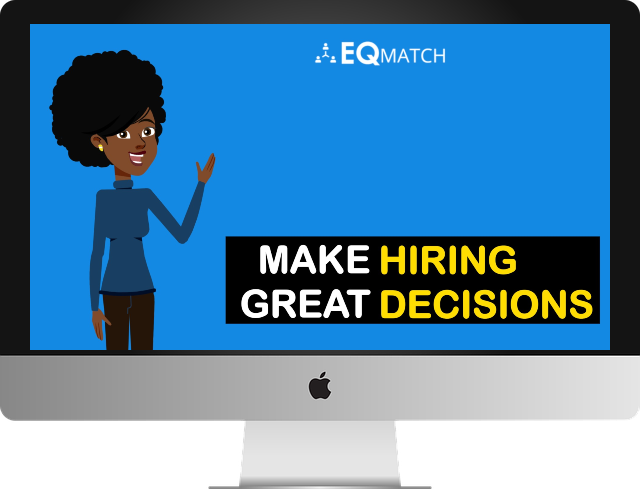As per Glassdoor, each corporate job gets 250 resumes on average. HR professionals and hiring managers of medium to large businesses address several open positions at any given time.
EQMatch conducted a study to understand how HR managers shortlist resumes for interviews. The study suggested that most HR professionals manually choose resumes for interviewing.
Missing the Complete Picture
Human resource professionals bear an important responsibility- hiring the right talent.
As per SHRM, the cost of recruiting, hiring, and onboarding a new employee can be as much as $240,000.
The United States Department of Labor puts the cost of a bad hire at up to 30% of the employee’s wages for the first year.
Reading a resume is not enough to understand a candidate’s potential. Moreover, a resume does not address the “human” side of the applicants. While qualifications and experience are important for job performance, the soft skills of people are equally important.
A lot goes into making a business successful- qualifications, skills, experience, passion, drive, collaboration, self-awareness, motivation, self-regulation, and empathy (among others).
It may seem like a simple task, but the more information HR professionals have about an individual, the better chance they have of hiring the right person.
Emotional intelligence is one aspect that can help human resource professionals and hiring managers make better decisions. Studies show that high emotional intelligence individuals often outperform others by far with their level of skill and overall ability to manage themselves and relationships successfully.
Cost of Bad Hire
The costs to replace a bad hire include recruitment advertising fees and staff time, relocation and training fees for replacement hire.
This also leads to a negative impact on existing teams, workflow disruption, unhappy or lost customers, outplacement services, weakened employer brand & reputation, and litigation fees.

Pre-interview assessment Emotional Intelligence Tests
Resumes and interviews have an important limitation- the inability to provide information beyond qualifications and experience.
Research by reference checking company Checkster found that 78% of job seekers lie during the hiring process. Scientifically validated pre-interview assessment tests, on the other hand, are objective, and hence, can help HR professionals make informed and better decisions.
Improve Efficiency, Save Time
The average time to fill a position in the US stands at 43 days.
As mentioned earlier, a corporate job gets 250 resumes on average.
Growing applicant pools make it difficult for hiring managers to indeed the right candidates from a massive pool of resumes.
Pre-interview emotional intelligence tests help streamline the hiring process.
By reducing the time to hire and by helping identify better candidates, these tests help organizations save time and costs associated with hiring.
A science-driven pre-interview emotional intelligence test can bring in the right employees, thus improving workforce productivity, increasing employee retention, and reducing turnover or attrition. 
EQMatch Emotional Intelligence Test
EQMatch Pre-Interview Assessment Emotional Intelligence test is based on a scientific framework. Thanks to the efforts of our research scientists, the EQMatch assessment model can assess emotional intelligence to a high degree of accuracy.
EQMatch emotional intelligence test can accurately measure the level of emotional intelligence of job applicants. HR managers and leaders trust EQMatch pre-interview emotional intelligence test to shortlist the best candidates for interviews.


No responses yet